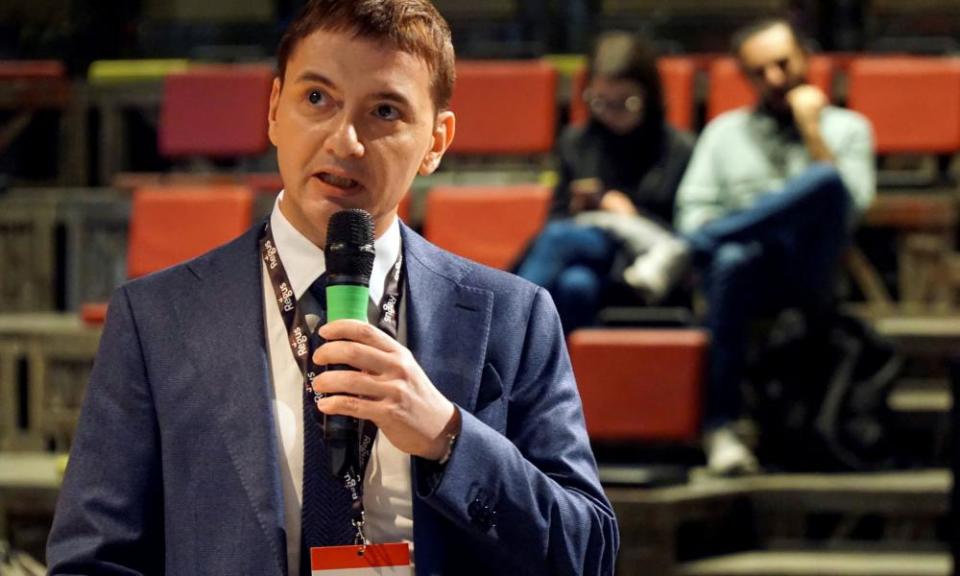Salvini’s social media mastermind faces drug dealing investigation

Luca Morisi, the influential social media guru credited with the surge in support for the Italian far-right League party, has been placed under investigation for the alleged possession and sale of drugs.
Morisi was the mastermind behind “the Beast”, software that helps to produce a constant stream of content – much of it fuelling animosity towards immigrants – across the social media accounts of Matteo Salvini, the leader of the League.
It was announced last week that Morisi had resigned from his role with the party, reportedly saying that he needed to “unplug” for family reasons.
However, the Verona prosecutor, Angela Barbaglio, told Ansa news agency on Monday that Morisi’s name had been “inserted into the register of people under investigation for the alleged transfer of a narcotic substance”.
The Italian media reported that the investigation began in mid-August, after three young men claimed that the narcotics found by police in their car had been supplied by Morisi. A small quantity of drugs was also allegedly found in a farmhouse owned by Morisi.
In a statement shared by the League, Morisi said he had not committed any crime, but apologised to Salvini, the League, his family and colleagues for his “weakness and mistakes”. He said that the story represented “a serious fall as a man”.
“It is a very painful moment in my life,” he added. “It reveals unresolved existential fragilities to which I need to devote all the time I can in the near future.”
Salvini wrote on Facebook that Morisi could count on him as a friend. “When a friend makes a mistake that you do not expect – and Luca has harmed himself more than others, at first you get angry, and in a big way. But then you lend him a hand to help him recover. Friendship and loyalty are everything in life.”
Morisi, 48, managed a team that carefully cultivated the image of Salvini as “a man of the people”, sharing posts of him savouring “Italian only” products, whether it be Nutella chocolate spread, tiramisu or pints of Moretti beer.
Related: How Matteo Salvini pulled Italy to the far right
Salvini, who was deputy prime minister and interior minister between June 2018 and August 2019, often declares war against drug dealers, even calling the government “drug dealers” after parliament approved the sale of a mild version of cannabis in 2019. But most of the antagonism has been directed at immigrants, who are often demonised as drug dealers across Salvini’s social media accounts. Salvini came under fire during the regional election campaign in Emilia-Romagna last year after ringing the doorbell of a Tunisian family and asking over the intercom if they dealt drugs, with the stunt being streamed live to his social media followers.
Morisi, a former lecturer at the University of Verona, began working with the League in 2013, the year Salvini became leader. At the time, the party was polling at a meagre 3% before capturing 18% of the vote in the 2018 general elections. The League rapidly grew to become the most popular party in Italy, polling at almost 35% a year later.
However, support for the party has waned, due in part to miscalculations by Salvini, including trying to collapse the government in 2019, a tactic that led to the party being pushed into opposition.
The League returned to government in February as part of the prime minister Mario Draghi’s broad coalition. The League still had the edge in polls last week, with 20.5%. But the Democratic party is only slightly behind, while the far-right Brothers of Italy, which partners with the League in elections, is in third place with almost 19%.
In recent months, Salvini has fallen to eighth place in surveys of the most appreciated leaders, after Draghi, the health minister, Roberto Speranza, and the Brothers of Italy leader, Giorgia Meloni.

 Yahoo Movies
Yahoo Movies 